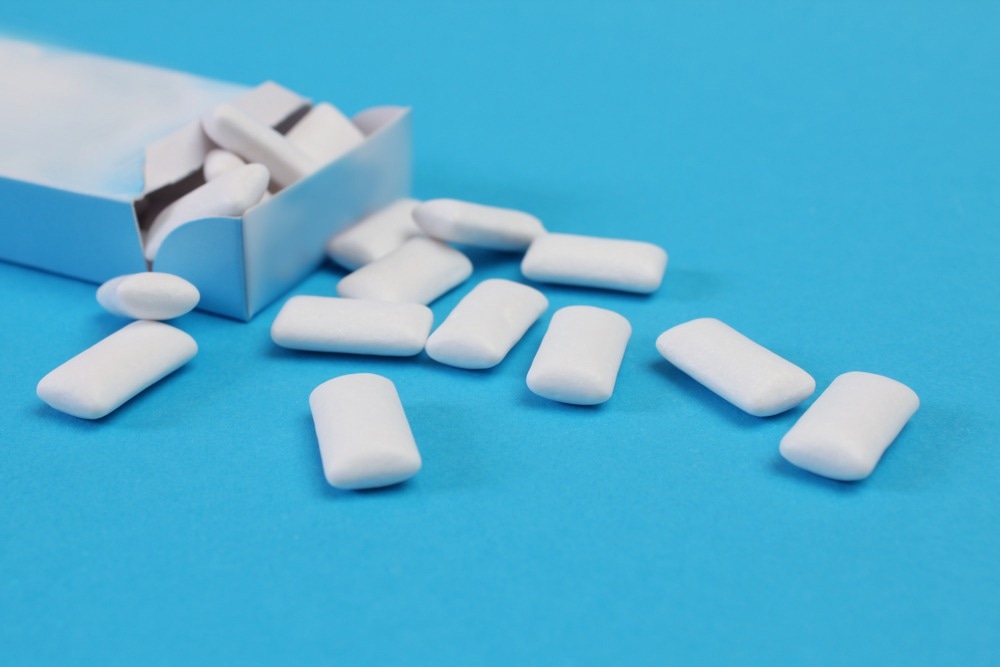In high-income countries, carbohydrate intolerance affects about 30% of the population. The exact mechanism of sorbitol intolerance remains unresolved. A recent Cell study showed how a high-fat diet and antibiotic exposure could trigger sorbitol intolerance by depleting Clostridia from the gut microbiota.
 Study: High fat intake sustains sorbitol intolerance after antibiotic-mediated Clostridia depletion from the gut microbiota. Image Credit: liveostockimages/Shutterstock.com
Study: High fat intake sustains sorbitol intolerance after antibiotic-mediated Clostridia depletion from the gut microbiota. Image Credit: liveostockimages/Shutterstock.com
Background
Sorbitol is poorly absorbed by the small intestine, which results in food items having fewer calories. It is a naturally occurring polyol present in fruits like apples, apricots, and pears, as well as sugar-free gum. Excessive consumption of sorbitol can lead to symptoms of carbohydrate intolerance, including flatulence, abdominal distention, and diarrhea. This is especially true in irritable bowel syndrome (IBS) patients or patients with quiescent inflammatory bowel disease (IBD).
Antibiotic treatment can temporarily raise polyol intolerance by altering the gut microbiota. This alteration could hamper metabolic functions that clear osmotically active solutes. Since this effect is temporary, it cannot explain the prolonged carbohydrate intolerance in IBD and IBS patients. Therefore, the treatment of sustained polyol intolerance centers around dietary interventions reducing polyol intake and other poorly absorbed oligosaccharides.
About this study
For this study, male C57BL6/J mice were obtained from The Jackson Laboratory. These animals were aged about six weeks. Furthermore, by mating Ppargfl/fl with Villincre/- mice, researchers were able to generate littermate Ppargfl/flVillin-/ mice and C57BL/6 Ppargfl/flVillincre/- mice. Animals were fed either a (sorbitol-free) 45% fat (HF) diet or a (sorbitol-free) 10% control (LF) diet. To study antibiotic-induced sorbitol intolerance, 20 mg/animal of streptomycin was used.
Study findings
This study developed a mice model for prolonged sorbitol intolerance and shed light on the pathophysiology of this condition. It was noted that the abundance of Clostridia was lowered by a combination of HF diet and antibiotic exposure. This observation challenges a commonly held view that malabsorption causes prolonged sorbitol intolerance. HF intake and sustained antibiotic exposure are also environmental risk factors for the pathophysiology of IBD.
In this mouse model, it was shown that a reduced abundance of Clostridia in the fecal microbiota and muted butyrate production could be functionally related to sustained sorbitol intolerance. These findings align well with clinical trials that demonstrate a correlation between gastrointestinal symptoms in IBD patients and carbohydrate intake.
An environment conducive to the growth of Clostridia is fostered by epithelial hypoxia, which lowers the diffusion of oxygen into the intestinal lumen. When colonic microbiota is disrupted by antibiotics, short-chain fatty acids are depleted. This alters epithelial metabolism and enhances the availability of host-derived oxygen.
Oxidative stress is triggered in host cells by an HF diet by raising the production of hydrogen peroxide by the mitochondria. This is how an HF diet hampers mitochondrial bioenergetic recovery post-antibiotic treatment. Subsequently, this interferes with microbiota recovery. The results presented here suggest that prophylaxis with 5-ASA could promote microbiota recovery and reestablish epithelial hypoxia post-exposure to antibiotics. This is true even when the subject is consuming a HF diet. Therefore, to treat prolonged sorbitol intolerance, a potential target could be the intestinal epithelium.
The findings also suggest that the microbiota could be a second treatment target. This is motivated by the observation that impaired microbial sorbitol catabolism could lead to prolonged sorbitol intolerance. Probiotics that consume sorbitol, such as L. plantarum or E. coli Nissle 1917, could be another treatment option, but the concentration of probiotics in the feces should govern the protective effect.
The data documented here suggest that A. caccae could be a second-generation probiotic targeting the microbes and the host to protect against sorbitol intolerance. Importantly, A. caccae was seen to protect against prolonged sorbitol intolerance even in a low abundance of probiotics. A. caccae was less effective when microbiota recovery was complete.
Limitations of the study
The limitations of the study center around the use of a mouse model and the extension to humans. Antibiotic-naive mice were seen to tolerate up to 5% sorbitol. In humans, this is equivalent to a daily intake of 20–30 g. This is a high dose that can potentially induce symptoms of carbohydrate intolerance among healthy control volunteers. Mice can tolerate a higher sorbitol intake compared to because humans possess an enlarged cecum in order to slow digestive flow. This aids in the catabolism of carbohydrates in the gut microbiota.
The difference in morphology and function between the gastrointestinal tracts of humans and mice presents the main limitations of rodent models. More studies are needed to assess whether probiotics or proliferator-activated receptor-γ (PPAR-γ) agonists could potentially treat or prevent sorbitol intolerance.